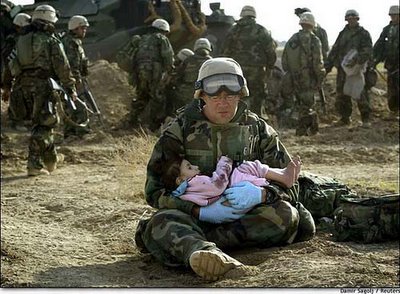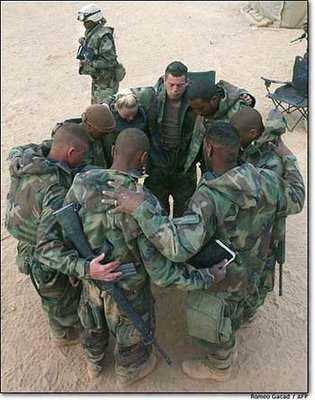
Government and Councils to spy on ALL our phones
By The Green Arrow
Back to the future
Officials from the top of Government to lowly council officers will be given unprecedented powers to access details of every phone call in Britain under laws coming into force tomorrow.
"One of these days, though Winston, Syme will be vaporized, he sees to clearly and speaks too plainly..." George Orwell - 1984
The new rules compel phone companies to retain information, however private, about all landline and mobile calls, and make them available to some 795 public bodies and quangos.
The move, enacted by the personal decree of Home Secretary Jacqui Smith, will give police and security services a right they have long demanded: to delve at will into the phone records of British citizens and businesses.
But the same powers will also be handed to the tax authorities, 475 local councils, and a host of other organisations, including the Food Standards Agency, the Department of Health, the Immigration Service, the Gaming Board and the Charity Commission. The initiative, formulated in the wake of the Madrid and London terrorist attacks
of 2004 and 2005, was put forward as a vital tool in the fight against terrorism. However, civil liberties campaigners say the new powers amount to a 'free for all' for the State snooping on its citizens.
And they angrily questioned why the records were being made available to so many organisations. Similar provisions are being brought in across Europe, but under much tighter regulation. In Britain, say critics, private and sensitive information will inevitably fall into the wrong hands.
Records will detail precisely what calls are made, their time and duration, and the name and address of the registered user of the phone.
The files will even reveal where people are when they made mobile phone calls. By knowing which mast transmitted the signal, officials will be able to pinpoint the source of a call to within a few feet. This can even be used to track someone's route if, for example, they make a call from a moving car.
"There will be no love, but the love of Big Brother. No laughter, but the laughter of triumph over a defeated enemy. No art, no science, no literature, no enjoyment, but always and only, Winston, there will be the thrill of power. If you want a picture of the future, imagine a boot stamping on a human face forever."
By The Green Arrow
Back to the future
Officials from the top of Government to lowly council officers will be given unprecedented powers to access details of every phone call in Britain under laws coming into force tomorrow.
"One of these days, though Winston, Syme will be vaporized, he sees to clearly and speaks too plainly..." George Orwell - 1984
The new rules compel phone companies to retain information, however private, about all landline and mobile calls, and make them available to some 795 public bodies and quangos.
The move, enacted by the personal decree of Home Secretary Jacqui Smith, will give police and security services a right they have long demanded: to delve at will into the phone records of British citizens and businesses.
But the same powers will also be handed to the tax authorities, 475 local councils, and a host of other organisations, including the Food Standards Agency, the Department of Health, the Immigration Service, the Gaming Board and the Charity Commission. The initiative, formulated in the wake of the Madrid and London terrorist attacks
of 2004 and 2005, was put forward as a vital tool in the fight against terrorism. However, civil liberties campaigners say the new powers amount to a 'free for all' for the State snooping on its citizens.
And they angrily questioned why the records were being made available to so many organisations. Similar provisions are being brought in across Europe, but under much tighter regulation. In Britain, say critics, private and sensitive information will inevitably fall into the wrong hands.
Records will detail precisely what calls are made, their time and duration, and the name and address of the registered user of the phone.
The files will even reveal where people are when they made mobile phone calls. By knowing which mast transmitted the signal, officials will be able to pinpoint the source of a call to within a few feet. This can even be used to track someone's route if, for example, they make a call from a moving car.
"There will be no love, but the love of Big Brother. No laughter, but the laughter of triumph over a defeated enemy. No art, no science, no literature, no enjoyment, but always and only, Winston, there will be the thrill of power. If you want a picture of the future, imagine a boot stamping on a human face forever."
Files will also be kept on the sending and receipt of text messages.
By 2009 the Government plans to extend the rules to cover internet use: the websites we have visited, the people we have emailed and phone calls made over the net.
The new laws will make it a legal requirement for phone companies to keep records for at least a year, and to make them available to the authorities. Until now, companies have been reluctant to allow unfettered access to their files, citing data protection laws, although they have had a voluntary arrangement with law enforcement agencies since 2003.
Many of the organisations granted access to the records already have systems allowing them to search phone-call databases over a computer link without needing staff at the phone company to intervene.
Police requests for phone records will need the approval of a superintendent or inspector, while council officials must get permission from the authority's assistant chief officer. Thousands of staff in other agencies will be legally entitled to retrieve the records once the request is approved by a senior official.
The new measures were implemented after the Home Secretary signed a 'statutory instrument' on July 26. The process allows the Government to alter laws without a full act of Parliament.
The move was nodded through the House of Lords two days earlier without a debate.
It puts into UK law a European Directive aimed at the 'investigation, detection and prosecution of serious crime'. But the British law allows the information to be used much more widely to combat all crimes, however minor.
The huge number of organisations allowed to access this data was attacked by Liberty, the civil liberties campaign group. Other organisations allowed to see the data include the Royal Navy Regulating Branch, the Atomic Energy Authority Constabulary, the Department of Trade and Industry, NHS Trusts, ambulance and fire services, the Department of Transport and the Department for the Environment.
A spokesman for Liberty said: 'Hundreds of bodies have been given the power to look at this highly sensitive information. It is yet another example of how greater and greater access is being given to information on our movements with little debate and little public accountability.
'It is a free for all. There is a lack of oversight of how and why public bodies are using these records. There is no public record of what they are using this information for.'
Tony Bunyan, of civil liberties group Statewatch, said: 'The retention of everyone's communications data is a momentous decision, one that should not be slipped through Parliament without anyone noticing.'
Last year, the voluntary arrangement allowed 439,000 searches of phone records. But the Government brought in legislation because the industry did not routinely keep all the information it wanted.
Different authorities will have different levels of access to the systems. Police and intelligence services will be able to see more detailed information than local authorities. And officials at NHS Trusts and ambulance and fire services can obtain the records only in rare cases when, for example, they are trying to save a patient's life.
"The thought police would get him just the same. He had committed—would have committed, even if he had never set pen to paper—the essential crime that contained all others in itself. Thoughtcrime, they called it. Thoughtcrime was not a thing that could be concealed forever. You might dodge successfully for a while, even for years, but sooner or later they were bound to get you."
The commissioner, Sir Paul Kennedy, reports to the Prime Minister and already carries out random inspections of some agencies legally allowed to see phone records under the existing voluntary scheme. Last year inspectors visited 22 councils already making 'significant' use of their powers' to access phone records. A report said the results were 'variable', but within the law.
"And if all others accepted the lie which the Party imposed—if all records told the same tale—then the lie passed into history and became truth. 'Who controls the past' ran the Party slogan, 'controls the future: who controls the present controls the past.'"
Privacy watchdog the Information Commissioner, which has responsibly for protecting personal information and policing the Data Protection Act had virtually no role in the new laws.
A spokeswoman said its only function was to ensure 'data security' at the phone companies, adding: 'We have no oversight role over the release of this information.'
The Home Office said there were safeguards to ensure the new law was being used properly. Every authority had a nominated senior member of staff who was legally responsible for the use the phone data was put to, 'the integrity of the process' and for 'reporting errors'.
A spokesman said: 'The most detailed level of data can be accessed only by law enforcement agencies such as the police. More basic access is available to local authority bodies such as trading standards and environmental health who can only use these powers to prevent and detect crime.'
A spokesman for the Local Government Association, which represents councils across England and Wales, said: 'Councils would only use these powers in circumstances such as benefit fraud, when the taxpayer is being ripped off for many thousands of pounds.'
He added that it was 'very unlikely' the powers would be used against non-payers of council tax or for parking fines 'as the sums involved are not sufficient to justify the use of this sort of information or the costs involved in applying it'.
"Underneath the spreading chestnut tree, I sold you and you sold me. They lie here, and here lie we, 'neath the spreading chestnut tree."
But some of you readers will still vote for the Tri-Axis parties that are now almost one in their unity to destroy Our Country and Our Freedoms. Why? Will just one of you tell me why?
"Until they become conscious they will never rebel, and until after they they have rebelled they cannot become conscious."
SOURCE











































